Life Sciences
Technology platforms mind the gap 1st November 2022
CordenPharma’s recent investments and global platform approach to CDMO development and commercialisation support pharma innovators to address their drug lifecycle gaps and reach patients faster.
 Across the spectrum of drug development, CDMO CordenPharma is aligning its facilities and technology platforms to mind the gaps pharma and biotech innovators often encounter as they work through development phases towards commercial markets and patients. Designed to promote the rapid scale-up of pre-clinical, clinical and commercial manufacturing capabilities, CordenPharma offers fresh thinking by experts in the forefront of their field and the latest science to accelerate development of today’s most advanced large and small-molecule therapeutics.
Across the spectrum of drug development, CDMO CordenPharma is aligning its facilities and technology platforms to mind the gaps pharma and biotech innovators often encounter as they work through development phases towards commercial markets and patients. Designed to promote the rapid scale-up of pre-clinical, clinical and commercial manufacturing capabilities, CordenPharma offers fresh thinking by experts in the forefront of their field and the latest science to accelerate development of today’s most advanced large and small-molecule therapeutics.
With a fully-integrated supply model as an overarching focus, CordenPharma has made recent, significant investments under all five technology platforms (Highly Potent and Oncology – Lipids and Carbohydrates – Peptides – Injectables – Small Molecules) in its current Good Manufacturing Practice (cGMP) facility network across Europe and the USA to create the stable, streamlined outsourcing pharma needs to develop and commercialise critical medications, and reach global patients successfully.
Small Molecule Platform augments solid-state development
By Stephen Houldsworth, PhD, Vice President of Platform Management, Marketing and Small Molecules Platform.
To help pharmaceutical developers bring their IP innovations to markets and patients even more successfully, CordenPharma decided to expand our Small Molecules service offerings to include solid-state development. By forming the Solid State Centre of Excellence in CordenPharma Liestal (CH), we are now organised to solve challenges with solid-state form and isolation strategies, as well as help customers move their assets to a better physicochemical state suitable for subsequent processing and drug product finishing.
Obtaining a stable, validatable solid-state chemistry form is a central goal of OSD drug development. For many patient-centric reasons, the need to develop drugs for oral administration will likely continue unabated, despite the barriers presented by complex chemistries and formulations. The earlier those barriers are overcome, the better. Innovators increasingly need to find a good home for API solid-state characterisation.
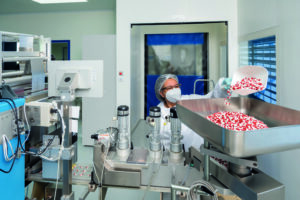
Liestal’s approach to solid-state IP enhancement focuses on several distinct areas of study and evaluation utilising some of the industry’s most advanced analytical technologies and solid-state characterisation methodologies.
Our focused analytical capabilities provide critical insight and understanding of complex phenomena, including characterising polymorphism and disorder in crystalline states. Liestal’s expert scientists can also explore interactions at the molecular level in crystalline and amorphous materials, the formation of defects and insights into related material phenomena.
We offer the opportunity for innovators to evaluate and characterise their API’s solid-state chemistries step-by-step, up or downstream the processing chain. Even customers in later stages of development can benefit from a robust understanding of their API’s crystal polymorph, and why it is optimal for their specific therapy and application.
Ultimately, growing numbers of pharmaceutical developers want to find faster, more efficient development paths for their IP and are relying on the competence and capabilities of external partners to guide them through development’s toughest challenges.
_______________________________________________________________________
Highly Potent and Oncology Platform accelerates OSD clinical trial development
By Brittany L. Hayes, PhD, Director, Global Highly Potent and Oncology Platform.
Because Oral Solid Dose (OSD) capabilities are in high demand, CordenPharma made the strategic decision to enhance our offering with an investment of €9.7 million into the design and installation of a new Clinical Trial Development (CTD4) facility located in CordenPharma Plankstadt (DE). From early-stage lot development to clinical supply-scale process, Plankstadt will be CordenPharma’s Centre of Excellence for the development and manufacturing of highly potent OSD products for compounds with OEL levels < 1 µg/m3.
Set to be commissioned in early 2023, the facility investment came about in response to drug developers’ need for capabilities that specifically address issues of scale and process in early phase clinical supply. Focused on the formulation challenges often troubling insoluble APIs, CTD4 is organised to help resolve the complexities relative to specifying and manufacturing complex OSD forms for clinical supply.
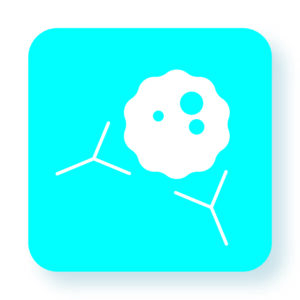 CordenPharma provides experience formulating and designing drug product supplies for in-human clinical studies. With the addition of hot melt extrusion into CTD4 at Plankstadt, our customers will now have access to an enabling technology that can increase the bioavailability of their solubility-limited APIs. Plankstadt also offers mini tablets, pelletising and microdosing capabilities, key technologies that can contribute to the quality and cost efficiency of clinical trials.
CordenPharma provides experience formulating and designing drug product supplies for in-human clinical studies. With the addition of hot melt extrusion into CTD4 at Plankstadt, our customers will now have access to an enabling technology that can increase the bioavailability of their solubility-limited APIs. Plankstadt also offers mini tablets, pelletising and microdosing capabilities, key technologies that can contribute to the quality and cost efficiency of clinical trials.
Depending on clinical trial dosing needs, mini tablets or pellets are a practical way of delivering APIs to patients. The forms are versatile and encapsulating them is a practical way to adjust dosage strengths and explore modified release profiles. Among mini tablets’ distinct advantages, the form’s accurate incremental dosing can support more robust clinical trial data. This delivery system, however, requires experience in terms of developing a suitable tableting process and analytical methods to analyse these mighty mini tablets. With access to this technology early in development, researchers can take better advantage of the safety and efficacy this form can offer.
Establishing a formulation’s effective dose introduces further complexity to clinical trial design, as well as clinical supply and manufacture. Across early phase drug development, microdosing is proving to be a key trial screening technology that provides a more efficient means to establish high-integrity dosing data to demonstrate safety and efficacy.
For many clinical studies, doses are often measured in fractions of milligrams that make capsules challenging to fill accurately for clinical study purposes. Highly potent compounds can introduce similar complexity. For much of recent development history, producing straight API-in-capsule clinical supply involved time-consuming manual filling and capping. This process is made all the more difficult by the tiny amounts of API. Manual filling also presents several quality, precision and safety issues.
Precision powder encapsulation systems facilitate the rapid manufacture of First-In-Human (FIC) drug products for Phase I studies. At CordenPharma for instance, we deploy Harro Höfliger encapsulation systems for clinical-scale production. These systems have the accuracy, speed and volume to meet today’s increasingly complex clinical supply needs cost-effectively.
Equipped with enabling OSD manufacturing technologies and clinical-scale cGMP capacity, CTD4 joins three other CTD facilities at the site ranging from non-GMP/R&D laboratory scale to 1-20 kg cGMP.
Designed to be flexible with multi-product capabilities, CTD4 will bridge the gap in scale between its 1-20 kg capabilities and our two commercial-scale facilities, and will be capable of manufacturing cGMP batches up to 60 kg.
________________________________________________________________________
Lipids & Carbohydrates Platform puts custom lipids to work delivering xRNA therapeutics
By Matthieu Giraud, PhD, Director, Global Peptides, Lipids & Carbohydrates Platforms.
 Drawing upon a legacy of excellence in synthetic lipid process development, CordenPharma is a leader in the scale-up and large-scale manufacturing of commercial lipids. As an early innovator holding Drug Master Files (DMFs) on some of the industry’s most applied commercial technologies, our Lipids & Carbohydrates technology offering spans development and manufacturing of custom and standard lipids excipients, including products aimed at efficient and effective Lipid NanoParticle (LNP) formulation.
Drawing upon a legacy of excellence in synthetic lipid process development, CordenPharma is a leader in the scale-up and large-scale manufacturing of commercial lipids. As an early innovator holding Drug Master Files (DMFs) on some of the industry’s most applied commercial technologies, our Lipids & Carbohydrates technology offering spans development and manufacturing of custom and standard lipids excipients, including products aimed at efficient and effective Lipid NanoParticle (LNP) formulation.
Our recent and substantial capital investment and development efforts covering custom lipid synthesis are demonstrating efficacy and utility delivering advanced complex mRNA therapeutics, including recent success with Moderna and Pfizer BioNTech vaccines.
CordenPharma supports mRNA vaccine development with four classes of high purity lipids required to formulate LNPs:
- Cationic lipids that encapsulate the negatively charged mRNA.
- PEGylated lipids that help form a protective hydrophilic layer that sterically stabilises the LNP.
- Distearoylphosphatidylcholine (DSPC) phospholipids that provide a stable bilayer-forming structure.
- BotaniChol®, CordenPharma’s non-animal origin cholesterol that stabilises the LNP structure and facilitates endosome escape.
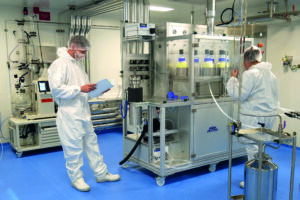
High-grade complex lipids play an increasingly significant role in today’s xRNA pharmaceutical development landscape. As part of this long-term strategy, CordenPharma recently completed the expansion of our specialty lipids production at CordenPharma Chenôve (FR), integrating Supercritical Fluid Chromatography (SFC) technology for compound separation. The beauty of SFC technology is the fact that it does not use organic solvents. It is a much faster process, which directly recycles 95% of the CO2 used.
In March, 2022, CordenPharma successfully demonstrated the successful characterisation of functional Lipid Nanoparticles by combining mRNA sourced from partner WACKER and lipids internally sourced from CordenPharma to produce a prototype formulation.The aim of the alliance is to offer developers and researchers a broader spectrum of custom LNP formulations and cGMP API contract manufacturing services. With closely aligned synergies, CordenPharma and WACKER look to help innovators accelerate development by leveraging end-to-end experience and advanced LNP technologies. Entering its second year, both companies continue to build joint research and development capacity for developing LNP formulation solutions.
In addition to creating Centres of Excellence to better meet customer needs, we have also made key investments across global operations. In CordenPharma Bergamo (IT), for example, we opened a new development centre with special emphasis on CMC filings for advanced lipid-based drug product technology transfers. In support of North American drug strategies, we also added a new 100 cm HPLC column with downstream continuous manufacturing operations in CordenPharma Colorado (US).
____________________________________________________________________
Injectables Platform expands sterile drug product capabilities
By Fabio Stevanon, Director, Global Injectables Platform.
In light of market trends, CordenPharma’s Injectable platform recently advanced its sterile injectable drug product and xRNA capabilities at CordenPharma Caponago (IT). Investing over €10 million in new Lipid Nanoparticle (LNP) formulation, development, and production capabilities, Caponago operations will soon be able to seamlessly progress programs from pre-clinical and clinical stages to full-scale commercial production.
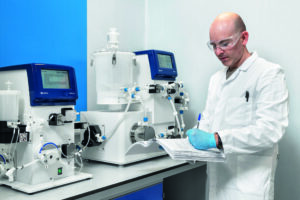
CordenPharma’s LNP formulation operations offer two different cGMP LNP assembly technologies: Microfluidic and Jet-Impingement. Microfluidic technology controls the flow of two different solutions (water-based and lipid-based), then mixes them in a precise manner to deliver small, uniform particles capable of sterile formulation for proper introduction into the human body. In the second technology, CordenPharma deploys Jet-Impingement, via a modified T-Junction. This technology is especially suited to accommodate larger-scale manufacturing and larger batch volumes.
The initial phase has already been completed, so we are now expanding the current approved R&D laboratory to have an area dedicated to LNP formulation and analytics technologies, where batches of an LNP-based drug product can range from a few mL to Litre sizes.
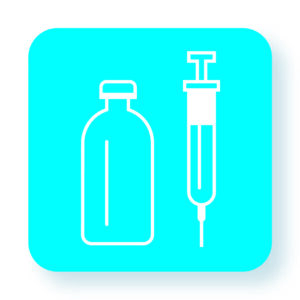 The next ongoing step is to build up a state-of-the-art LNP formulation GMP plant, where it will be possible to scale up anything developed at the R&D level. This new LNP cGMP capability, with batch sizes spanning from a few Litres upwards, will be located alongside existing injectable formulation technologies, enabling CordenPharma to easily produce LNP-based formulations into liquid or lyophilised finished dosage forms.
The next ongoing step is to build up a state-of-the-art LNP formulation GMP plant, where it will be possible to scale up anything developed at the R&D level. This new LNP cGMP capability, with batch sizes spanning from a few Litres upwards, will be located alongside existing injectable formulation technologies, enabling CordenPharma to easily produce LNP-based formulations into liquid or lyophilised finished dosage forms.
Given CordenPharma’s strategy as a ‘ONE PARTNER CDMO’, our new manufacturing capacity for LNP-based drug products will extend beyond integrated formulation capability to grant full access to our specialised lipid excipients portfolio under the Lipids and Carbohydrates platform, where CordenPharma is widely recognised as one of the key global players.
________________________________________________________________________
Fewer gaps, faster programs, better patient outcomes
Fully-integrated supply, continuous improvement and investment in key platform competencies across our network are helping customers span the gaps in development, commercialise their products more efficiently and reach patients faster. With experts and cutting-edge technology across Europe and the USA CordenPharma’s CDMO platforms and facilities assure there are no gaps too wide to overcome in reaching patients successfully.


